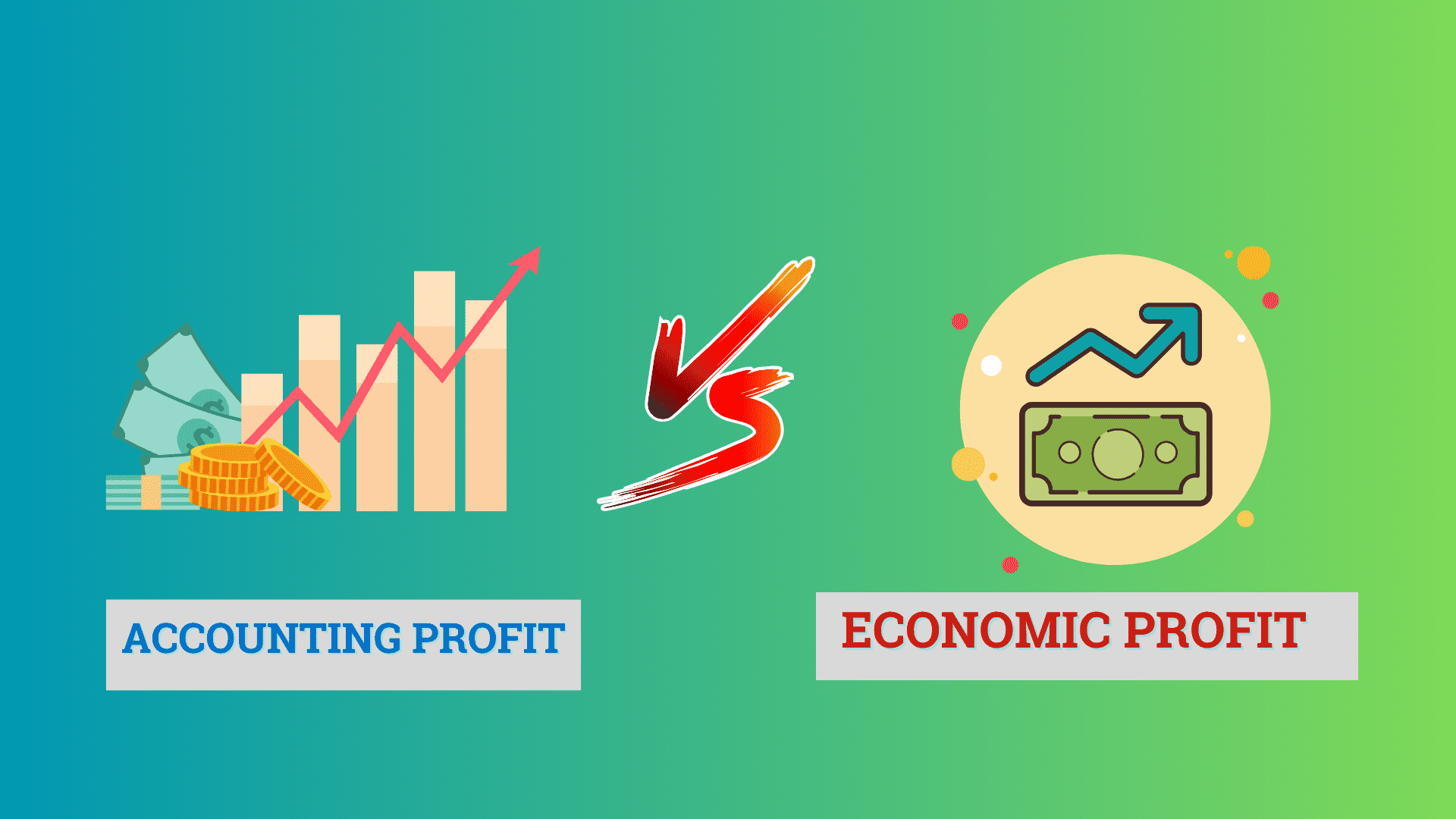“Accounting profit” and “economic profit” are two key financial terms that businesses must keep track of to monitor their performance and control expenses.
Today’s blog post will discuss these two terms in detail.
Economic Profit
Economic profit is estimated based on assumptions and is a theoretical value.
Economic profit measures the business’s profitability and includes explicit and implicit costs. Explicit costs are the direct business costs, such as wages, rent, and materials. On the other hand, implicit costs are the opportunity costs associated with using resources owned by the firm, such as time and capital.
The formula to calculate economic profit is:
Economic Profit = Total Revenue − (Explicit Costs + Implicit Costs)
Economic profit includes the accounting costs (explicit costs) and the opportunity costs (implicit costs). If economic profit is positive, the business is earning more than it could by employing its resources in alternative uses. If economic profit is negative, the business is not covering all its costs, including the opportunity costs.
Accounting Profit
Accounting profit is the actual profit that the business earns. It measures the business’s profitability and considers only explicit costs, which are the direct costs incurred in the business operations as mentioned by GAAP.
Explicit costs include wages, rent, utilities, materials, and other tangible expenses.
The formula for accounting profit is:
Accounting Profit = Total Revenue − Explicit Costs
Accounting profit is also sometimes known as an earned profit, net income, or bottom line.
Accounting profit is the difference between the total revenue generated by a business and the explicit costs associated with producing goods or services. It provides a business’s financial performance by focusing on the actual monetary outlays.
Accounting profit does not consider implicit costs, which are opportunity costs associated with using resources owned by the firm.
Difference Between Accounting and Economic Profit
The following table shows the key difference between accounting profit and economic profit.
| Accounting Profit | Economic Profit |
| The difference between total revenue and total explicit costs. Explicit costs include all monetary costs | The difference between total revenue and total costs (e.g., explicit and implicit costs) |
| Short-term focus, usually based on historical accounting data | Long-term focus, considers both current and future costs and benefits |
| Primarily used for financial reporting and tax purposes | More useful for economic decision-making, as it accounts for all costs (e.g., opportunity costs) |
| May not accurately reflect economic profitability, as it may not consider implicit costs | Provides a better indication of economic viability and resource allocation |
Summary
Economic profit differs from accounting profit because accounting profit considers explicit costs when calculating profitability, whereas economic profit provides a more comprehensive view by including explicit and implicit costs, thereby offering a better understanding of the company’s true financial performance.
